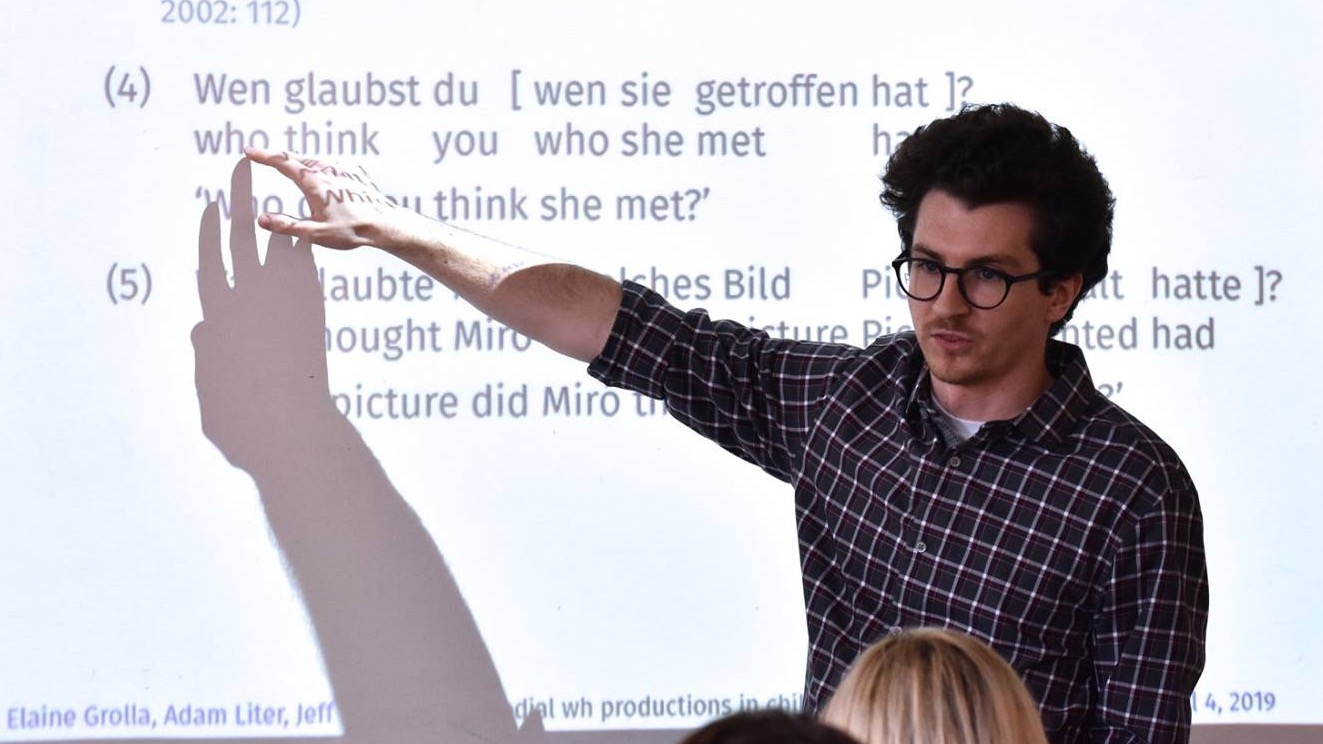General Meeting - Adam Liter / Investigating ECP effects

General Meeting - Adam Liter / Investigating ECP effects
Friday October 29, Adam Liter leads our General Meeting with a presentation of work within his dissertation project, "Subjacency, the Empty Category Principle, and the nature of constraints on phrase movement." More specifically:
The Empty Category Principle (ECP), but not Subjacency, was famously argued to constrain covert movement, thereby giving an account of the contrast between questions like (1a) and (1b) in languages like Mandarin (cf. Huang 1982), since the status of argument traces was different from the status of adjunct traces with respect to the ECP. That is, the adjunct trace that would be present in (1b) at LF after covert movement takes place would violate the ECP, but the argument trace that would be present in (1a) at LF after covert movement takes place would not.
1. a. Yuehan xiangzhidao Bier jian le chi shenme de nühai
John wonders Bill meet ASP eat what REL girl
'John wonders what Bill met the girl that ate t'
b. *Yuehan xiangzhidao Bier jian le weishenme chi shousi de nühai
John wonders Bill meet ASP why eat sushi REL girl
'John wonders why Bill met the girl that ate sushi t'
Recent experimental syntax work has suggested the need to, at least in some cases, be more cautious about the inference from a sentence's acceptability status to a sentence's grammaticality status. Several recent studies have suggested that certain putative island-violating sentences which were through to be grammatical in virtue of being acceptable are arguably ungrammatical (e.g., Almeida 2014, Sprouse et al. 2016, Kush et al. 2018, Lu et al. 2020).
In particular, Lu et al. (2020) presented evidence suggesting that sentences like (1a) are actually ungrammatical, despite being judged relatively acceptable. This raises the prospects of potentially eliminating the ECP as a principle of grammar and treating both (1a) and (1b) as Subjacency violations, just like their English counterparts. Nonetheless, the ECP was also implicated in the account of a variety of other phenomenon, including the contrast between sentences like (2a) and (2b). While both (2a) and (2b) violate Subjacency, only (2b) additionally violates the ECP, thereby accounting for its status as markedly less acceptable.
2. a. ? What did Amy wonder whether to fix t?
b. * Why did Amy wonder whether to fix the car t?
I investigate the possibility that a parsing-based explanation can account for the difference in acceptability between (2a) and (2b). In today's meeting, I propose an experiment aimed at testing this hypothesis, and I'd greatly appreciate your feedback on the experimental design.

